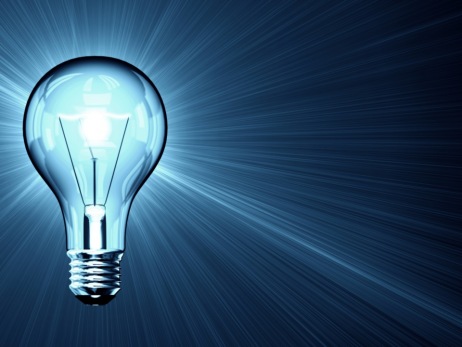On March 31st at 8:30 pm, people around the world will shut off their lights for one hour as a symbolic gesture that they want “something” done about climate change. During that same hou,r many other people around the world will keep their lights on in appreciation of human ingenuity and in defiance of the philosophy that paints humans as a blight on the planet.
Human beings exploit the environment. This isn’t a bad thing–it is how we survive and thrive. We don’t have claws or fur. We don’t live in trees or burrow underground, and really, who would want to? The way that humans have evolved from shivering in dark caves to curling up in a heated home, under a down blanket, with music, lights, and indoor plumbing, is by analyzing our environment and altering it in ways that improve our lives. It’s the human way.
Yet, there are some people out there who think that humanity as a disease on the earth that, unchecked, will use up all of its resources. They want you to turn off your lights for an hour this Saturday for “Earth Hour” in a show of support for enforced energy conservation. It’s your right to choose to do this if you want. On the other hand, you can join the thousands of people around the world that will not shut off their lights during that hour, and instead will celebrate the innovations of humanity and advocate for the protection of our freedom to continue advancing.
At the Competitive Enterprise Institute, we started Human Achievement Hour in 2009 to highlight the idea that environmentalism, as a philosophy, has this at its core: that humans should not exploit the Earth–even if it means humanity doesn’t advance, fewer people live, and those who do survive live shorter, sicker, and less comfortable lives.
Many people participating in the World Wildlife Fund’s Earth Hour are honestly motivated by their personal desire to live in a clean and beautiful environment–which is understandable. However, they are unknowingly lending their support to a movement that wants to clamp down on human progress. The implicit idea behind Earth Hour, Earth Day, and similar efforts is that human beings, through our exploitation of natural resources and the waste we produce, are an unnatural and negative force in the world, and that our existence should be controlled, limited, and ultimately reduced.
Our celebration, which highlights the benefits of freedom and technological innovation, struck a nerve with environmentalists in the media. Some called it “strange,” many called it “stupid,” and others simply said we were ruining the world. The holiday also struck a chord with folks around the world who picked up on the idea of celebrating human intelligence. On his blog, “Objective Extrospection,” Rajesh in India wrote:
Coming from India where we routinely suffer power cuts due to mixed-market policies of the government, I found this [article on counter-Earth Hour holidays] fantastic. … Let’s use the wavelength of both light and philosophy to keep darkness at bay.
We have no issue with private, voluntary conservation efforts. Individuals, whether alone or in a group, are welcome to turn off their lights, whether they think they are reducing emissions or simply want to save money. However, no one should have the right to use government coercion to force others to sit in the dark. Cleaner, advanced technologies are built upon “dirtier” technologies. All of the innovations we enjoy today–from sliced bread to buildings to computers–stand on the shoulders of technologies that came before. The more government interferes with individuals’ ability to utilize natural resources and experiment with new technologies, the more expensive and more difficult it is to advance.
We in the West have reached a level where we can sit in the dark for an hour, fully confident that the lights will come back on when we flick the switch, but there are many places around the world where that is not the case. In some countries it is Earth Hour every hour.
Human Achievement Hour is an annual event that recognizes and celebrates the fact that this is the greatest time to be alive yet, and that the reason we have come this far is that people have been free to use their minds and the resources in their environment to experiment, create, and innovate.
Participants in the Human Achievement Hour celebration recognize the necessity of protecting the individual from government coercion, so that we may continue improving our lives and the world around us.
Join us on March 31, 2012, from 8:30 p.m. to 9:30 p.m. wherever you are by not shutting off your lights. You can also join our party by visiting our website,www.cei.org/hah, where we will live-stream our in-house CEI Human Achievement Hour celebration.
Michelle Minton is the Fellow in Consumer Policy Studies for the Competitive Enterprise Institute and the founder of Human Achievement Hour.

COMMENTS
Please let us know if you're having issues with commenting.